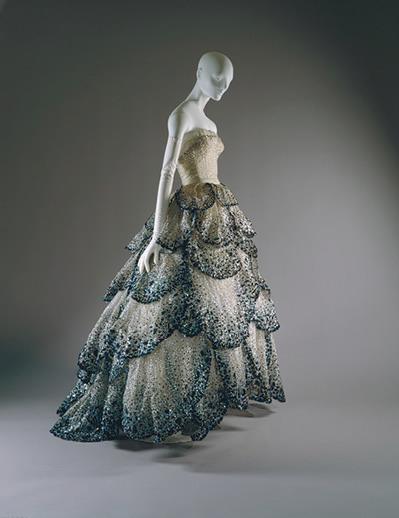How Sedgars South Africa Brings Comfort and Couture Together
How Sedgars South Africa Brings Comfort and Couture Together
Blog Article
The Influence of Lasting Practices on Modern Style Styles
Lasting practices have actually reshaped modern style, driving a shift towards environmentally friendly materials and ethical manufacturing. Designers now prefer organic cotton, recycled materials, and ingenious textiles. Upcycling has actually transformed waste into unique garments, while openness in sourcing has become vital. This evolution reflects an expanding awareness amongst customers regarding their acquiring selections. As the industry adapts, new fads arise that obstacle typical aesthetic appeals. What might the future hold for style in this framework?
The Rise of Eco-Friendly Materials
How have green products changed the garment industry? The emergence of eco-friendly products has substantially reshaped fashion, driving brands to reassess their sourcing and production processes. These sustainable options, consisting of organic cotton, hemp, and recycled polyester, provide a reduced ecological impact contrasted to standard textiles. Developers are now focusing on these materials, recognizing that customers progressively favor brand names committed to sustainability.This change has actually led to ingenious approaches, where style residences experiment with natural dyes and biodegradable materials, enhancing both visual allure and environmental responsibility. In enhancement, collaborations between designers and sustainability-focused firms have sped up the combination of eco-friendly products into mainstream collections.As a result, the apparel industry is observing a progressive but profound change, relocating towards a much more sustainable future. This dedication not just mirrors developing customer values however also shows the potential for fashion to lead in ecological stewardship.
Upcycling: Changing Waste Into Fashion
Upcycling has actually become a transformative force in the fashion business, transforming discarded materials into desirable garments and accessories. This ingenious method not just minimizes waste however also motivates creativity and originality among developers. By repurposing things such as old garments, material scraps, and even non-textile materials, upcycling develops one-of-a-kind items that narrate, showing private design and ecological consciousness.Many modern brands and independent designers have embraced upcycling as a core practice, appealing to customers that value sustainability and individuality. The process frequently entails strategies like reconfiguration, jumble, or embellishment, allowing for limitless possibilities in layout. Because of this, upcycled style resonates with those looking for to make environmentally liable choices while still sharing personal aesthetics.In significance, upcycling not just reduces the ecological impact of style waste but likewise fosters a brand-new society of development and admiration for workmanship within the sector.
Ethical Manufacturing: Fair Labor and Transparency
Honest manufacturing in vogue stresses the importance of fair incomes for workers, making certain that laborers get simply settlement for their efforts. Transparency in supply chains is crucial, allowing consumers to comprehend the beginnings of their garments and the problems under which they are made. Additionally, ethical sourcing methods advertise duty in picking products, reinforcing the commitment to sustainability and social justice.
Fair Salaries for Workers
While the style market significantly embraces sustainable practices, making certain reasonable wages for workers stays an essential part of moral manufacturing. Fair wages not only empower workers however likewise improve the general high quality of life for people in the supply chain. Lots of brand names are currently embracing plans that prioritize equitable compensation, acknowledging that a sustainable future can not be improved exploitation. By devoting to fair pay, business promote commitment and improve efficiency among their workers (Premium Fashion Sedgars). In addition, customers are coming to be extra knowledgeable about labor concerns and are progressively demanding transparency regarding employees' civil liberties. As an outcome, brands that prioritize reasonable earnings are not only aligning with moral criteria however are also placing themselves competitively in a market that values social responsibility
Openness in Supply Chains
The dedication to fair wages is inherently linked to the broader concern of transparency in supply chains within the fashion business. Transparency warranties that consumers are informed concerning the origins of their clothing and the problems under which they are produced. Brand names that prioritize openness typically publish in-depth reports detailing their supply chain processes, labor techniques, and sourcing of materials. This visibility fosters trust fund and loyalty amongst consumers that increasingly require honest practices. Moreover, transparency assists to hold companies answerable for their labor practices, making it possible for examination and motivating improvements. By revealing the complexities of their supply chains, brand names can add to a more fair style ecosystem, eventually advertising not only honest manufacturing yet likewise lasting intake among their clients.

Moral Sourcing Practices
As consumers end up being more mindful of the influence of their acquiring choices, brands are significantly taking on honest sourcing practices that prioritize reasonable labor and environmental sustainability. These methods entail guaranteeing that employees obtain fair earnings, secure working conditions, and are treated with dignity. Several fashion business are relocating away from exploitative labor methods and are instead collaborating with suppliers who abide by honest criteria. Openness in sourcing further enhances consumer depend on, as brand names divulge their supply chain techniques, allowing customers to make informed choices. This shift towards honest sourcing not only adds to social duty yet additionally reverberates with an expanding group that worths sustainability in vogue. Because of this, moral sourcing is becoming a defining characteristic of modern fashion brand names.
The Duty of Modern Technology in Lasting Style
Although the apparel industry has actually long been connected with waste and air pollution, modern technology is significantly changing it right into a much more lasting field. Advancements such as 3D printing make it possible for designers to create garments with less material waste, while electronic material printing enables on-demand production, minimizing excess stock. Furthermore, advancements in reusing modern technologies are facilitating the repurposing of fabrics, lessening garbage dump contributions.In addition, information analytics and man-made intelligence aid brand names forecast fads a lot more accurately, guaranteeing they create only what is required. Blockchain innovation boosts openness in supply chains, allowing customers to trace the beginnings of their clothes and verify lasting practices. In addition, wearable innovation is evolving, advertising toughness and performance in vogue things. Via these technological innovations, the apparel industry is gradually taking on a more circular economy design, fostering sustainable techniques that might redefine its ecological impact.

Mindful Consumerism: Shifting Purchaser Mindsets
Conscious consumerism is improving the apparel industry as buyers progressively focus on honest fashion choices. This change is driven by a demand for openness, engaging brands to divulge their practices and supply chains. Because of this, brand name loyalty is advancing, with consumers a lot more most likely to support those that line up with their worths.
Ethical Style Selections
Shifting purchaser attitudes in the direction of honest style choices shows an expanding awareness of the effect of customer actions on the environment and society. Consumers are significantly prioritizing brands that highlight honest manufacturing techniques, sustainable materials, and fair labor problems. This adjustment is sustained by a need to support companies that line up with individual worths, advertising an extra responsible apparel industry. Consequently, brand names are adjusting their approaches, incorporating transparency and sustainability into their core objectives. Moral style choices not only test standard retail techniques yet additionally urge customers to reflect on the lifecycle of their garments. This change represents a collective step in the direction of an extra aware strategy to style, where the effects of acquisitions prolong beyond simple aesthetics to encompass broader environmental and social factors to consider.
Influence of Openness

Brand Loyalty Change
What drives consumers to remain devoted to brand names in today's fashion landscape? Progressively, sustainability plays a crucial role. As understanding of ecological issues grows, customers are gravitating towards brand names that show ethical methods and openness. This change in the direction of mindful consumerism has actually brought about a reevaluation of conventional brand commitment, where worths align a lot more very closely with individual ethics. Brands that focus on lasting products, reasonable labor methods, and green manufacturing approaches are frequently awarded with consumer loyalty. This development is shown in acquiring decisions, as purchasers are a lot more ready to sustain brand names that add favorably to culture. Sustainability has become not just an advertising and marketing tool, yet a specifying aspect in establishing long-term brand links with a more discerning and socially aware customer base. Mindful The Influence of Lasting Fashion on Trends
As customers increasingly prioritize sustainability, the apparel industry is experiencing a considerable change in trends. This change has caused the rise of environment-friendly materials, such as organic cotton, recycled polyester, and ingenious textiles obtained from sustainable sources. Developers are increasingly focused on creating versatile, long-lasting garments that encourage conscious consumption, relocating away from rapid style's fleeting hop over to these guys styles.Moreover, honest methods are becoming a characteristic of brand name identification, with several business highlighting their commitment to fair labor and ecological stewardship. The influence of sustainable style is additionally noticeable in the popularity of second hand shopping and clothes swaps, decreasing and promoting a round economy waste.Fashion programs and projects now typically feature lasting collections, stressing the aesthetic charm of eco-conscious choices. On the whole, the effect of lasting style on trends mirrors a broader societal change in the direction of responsible consumerism, shaping the future of the sector in profound ways.
Future Technologies in Eco-Conscious Design
The development of lasting style trends lays the groundwork for future advancements in eco-conscious layout. As consumers progressively focus on ecological duty, designers are checking out cutting-edge materials and techniques. Naturally degradable textiles, such as mycelium and algae-based fabrics, are obtaining traction, promising to decrease waste and reliance on petroleum-based fibers.Moreover, developments in innovation are leading the means for cutting-edge manufacturing approaches. 3D printing, for example, click now permits on-demand manufacturing, lessening excess stock and source intake. Round fashion designs are likewise emerging, emphasizing recycling and upcycling, allowing garments to have extended life cycles.Collaboration between brands and innovation business is crucial for these innovations. By leveraging information analytics and artificial knowledge, developers can develop a lot more lasting supply chains and minimize their carbon impacts. As eco-conscious techniques proceed to evolve, they fundamentally transform the style landscape, pushing the borders of creative thinking while securing the earth.
Regularly Asked Concerns
Exactly How Can I Identify Lasting Style Brands When Buying?
To identify lasting style brand names while shopping, one should seek qualifications, scrutinize materials, assess manufacturing transparency, and research brand name values. Sedgars. Involving with consumer testimonials and sustainability records can even more guide educated buying choices
Are Second-Hand Clothing Considered Lasting Fashion?
Pre-owned clothes are usually considered sustainable style due to their function in reducing waste and expanding the lifecycle of garments. By purchasing secondhand items, customers add to a much more environment-friendly clothing economic situation.
What Is the Environmental Effect of Quick Fashion?
The ecological impact of quick style is significant, adding to pollution, extreme waste, and source depletion. The market's fast manufacturing cycles typically focus on earnings over ecological sustainability, worsening environment change and harming ecosystems worldwide.
How Do Lasting Practices Affect Style Pricing?
Sustainable methods commonly lead to higher production expenses as a result of ethical sourcing and environment-friendly products. Sedgars Designer Fashion. Subsequently, style pricing may boost, showing the financial investment in ecological duty and reasonable labor techniques, which can affect customer purchasing decisions
Can Lasting Style Be Fashionable and elegant?
The concern of whether sustainable fashion can be trendy and stylish frequently arises. Many developers currently blend environmentally friendly materials with innovative layouts, confirming that sustainability and contemporary aesthetic appeals can exist side-by-side, attracting a fashion-conscious audience. Lasting techniques have reshaped modern-day fashion, driving a shift in the direction of environment-friendly materials and ethical manufacturing. While the style market increasingly embraces lasting methods, guaranteeing reasonable earnings for workers remains an important element of ethical manufacturing. Conscious consumerism is improving the fashion sector as purchasers increasingly focus on ethical style options. The influence of lasting fashion is additionally obvious in the popularity of thrift purchasing and clothes swaps, find more information reducing and advertising a round economy waste.Fashion programs and projects now often include sustainable collections, stressing the visual appeal of eco-conscious choices. To determine sustainable fashion brand names while buying, one should look for accreditations, look at products, examine production transparency, and study brand name values.
Report this page